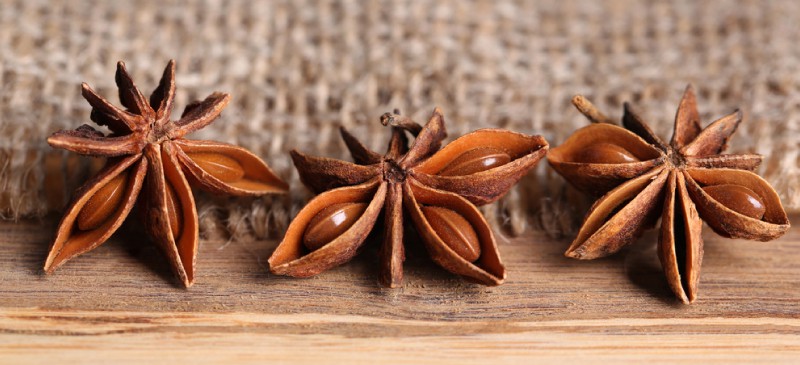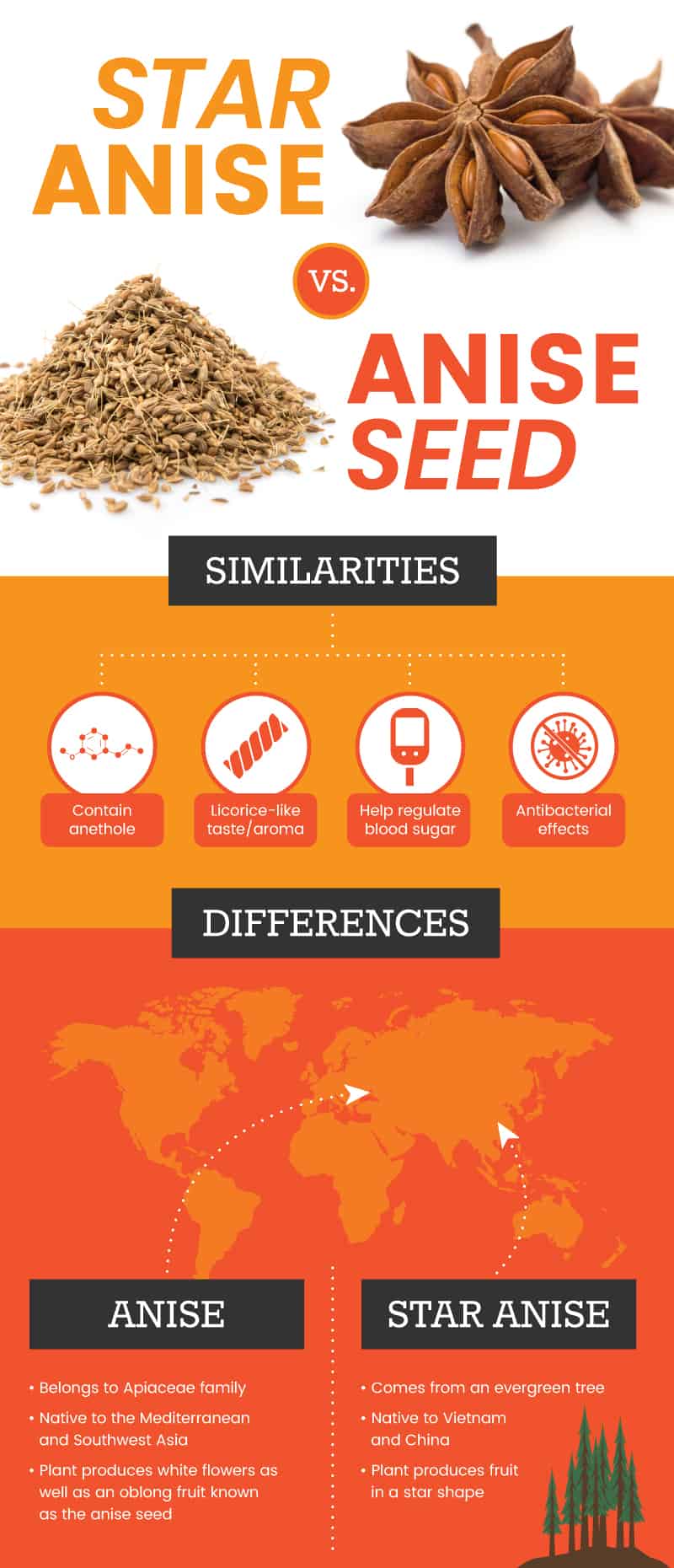This Dr. Axe content is medically reviewed or fact checked to ensure factually accurate information.
With strict editorial sourcing guidelines, we only link to academic research institutions, reputable media sites and, when research is available, medically peer-reviewed studies. Note that the numbers in parentheses (1, 2, etc.) are clickable links to these studies.
The information in our articles is NOT intended to replace a one-on-one relationship with a qualified health care professional and is not intended as medical advice.
This article is based on scientific evidence, written by experts and fact checked by our trained editorial staff. Note that the numbers in parentheses (1, 2, etc.) are clickable links to medically peer-reviewed studies.
Our team includes licensed nutritionists and dietitians, certified health education specialists, as well as certified strength and conditioning specialists, personal trainers and corrective exercise specialists. Our team aims to be not only thorough with its research, but also objective and unbiased.
The information in our articles is NOT intended to replace a one-on-one relationship with a qualified health care professional and is not intended as medical advice.
Is Star Anise Good for You? 6 Benefits of This Sweet Spice
January 23, 2018

From its unmistakable aroma to its unique star-shaped appearance, star anise is truly a one-of-a-kind spice. Plus, not only is it super versatile and chock-full of flavor, but it also contains a number of compounds that can help kick up your health.
Not to be confused with anise seed benefits, star anise benefits include killing off bacteria and fungus, naturally fighting off the flu, boosting heart health, providing a concentrated dose of antioxidants and keeping blood sugar levels steady.
Coupled with a nutritious diet and active lifestyle, adding this powerful ingredient into your diet may be just what you need to bring your health to the next level.
What Is Star Anise?
Star anise comes from Illicium verum, a type of evergreen tree native to certain parts of Vietnam and China. The tree produces a fruit known as star anise that is used as a spice to add flavor to a variety of dishes. The fruit is picked before ripening and then dried in the sun to allow it to harden. It is characterized by its distinct star shape, reddish-orange color and strong aroma.
The star anise taste is often described as sweet and licorice-like. It’s considered a key ingredient in five-spice powder, a spice mixture used in Chinese cuisine that also includes cloves, Chinese cinnamon, fennel seeds and Sichuan pepper, and is also sometimes added to other spice mixes like garam masala. The oil of the fruit is also commonly found in mouthwash, perfume, toothpaste and cosmetics.
Star anise contains many medicinal compounds that contribute to its long list of health benefits. In fact, much of the star anise plant production today is used for the extraction of shikimic acid, the active ingredient in flu medications like Tamiflu. It also contains several other potent compounds, such as linalool, vitamin C and anethole.
Is Star Anise Good for You? 6 Benefits of Star Anise
- Kills off bacteria
- Rich in antioxidants
- Wards off fungal infections
- May boost heart health
- Natural flu fighter
- Can help regulate blood sugar
1. Kills Off Bacteria
Pathogenic bacteria can cause a variety of ailments, ranging from ear infections to urinary tract infections and beyond. Star anise has been shown to possess powerful antibacterial properties and may be beneficial in protecting against these harmful strains of bacteria. (1)
One test-tube study demonstrated that star anise extract was able to help block the growth of E. coli, a type of bacteria that can cause a broad array of symptoms, such as diarrhea and pneumonia. (2) Another test-tube study published in the Journal of Medicinal Food demonstrated that this spice exhibited antibacterial activities against 67 strains of antibiotic-resistant bacteria. (3)
Additionally, this spice also contains several compounds that have been shown to be antibacterial as well. Anethole, linalool and shikimic acid are all compounds found in star anise that are reported to help fight against bacteria. (4, 5, 6)
2. Rich in Antioxidants
Antioxidants are substances that can protect against the formation of harmful free radicals in the body. Getting enough antioxidants in your diet can also combat oxidative stress, which can prevent the progression of chronic disease. (7)
Thanks to its high antioxidant content, some studies have even found that star anise may be effective against cancer cells as well. In one animal study, it was found to reduce tumor burden and oxidative stress, plus increase levels of specific enzymes that play a role in cancer prevention. (8) However, research is limited, and more studies are needed to determine how the antioxidants found in star anise may impact human health.
3. Wards Off Fungal Infections
In addition to killing off pathogenic strains of bacteria, some research also shows that star anise pods could possess powerful antifungal properties as well. Fungal infections are often more difficult to treat and can present in a variety of forms, from yeast infections to athlete’s foot and jock itch.
According to a test-tube study published in the Korean Journal of Medical Mycology, star anise extract and essential oil were effective against Candida albicans, a type of fungus that is responsible for causing yeast infections. (9)

4. May Boost Heart Health
Ranked as the leading cause of death and accounting for nearly one-third of all deaths in 2013, it’s clear that heart disease is a massive health concern for millions around the world. (10)
Brimming with potent antioxidants, star anise may be able to help reduce oxidative stress, prevent the buildup of harmful free radicals and help enhance heart health.
Although research is limited, some studies have turned up promising results on the potential benefits of this spice on heart health. In a 2015 animal study published in BMC Complementary and Alternative Medicine, an ethanol extract of star anise was found to help normalize changes in weight, blood pressure and lipid levels in mice fed a high-fat diet. Not only that, but it also reduced the buildup of plaque in the arteries and decreased several markers of inflammation as well. (11)
Keep in mind that further research is needed, but adding star anise to a healthy diet and lifestyle may be able to keep your heart in good shape to protect against issues like heart disease and stroke.
5. Fight the Flu
Chills, fever, muscle aches and fatigue — if you’re like most people, you’re probably all too familiar with the dreaded list of symptoms that start to pop up right before a full-blown case of the flu. Next time you find yourself feeling under the weather, you may want to consider brewing up a cup of star anise tea for a quick boost of flu-fighting power.
Star anise contains a compound called shikimic acid, which is commonly found in medications used to treat influenza, such as Tamiflu. A test-tube study published in the Journal of Medical Virology found that combining shikimic acid with quercetin, a type of natural plant pigment, was able to significantly increase the production of immune cells compared to treatment with Tamiflu. (12)
6. Could Help Regulate Blood Sugar
High blood sugar can cause a long list of diabetes symptoms, from increased thirst to difficulty concentrating, fatigue and even unintentional weight loss. Left untreated, high blood sugar can even contribute to more serious issues long-term, such as kidney failure and nerve damage.
Adding star anise to your routine may help keep your blood sugar in check, thanks to the presence of anethole. Some studies have found that this powerful compound could be beneficial in maintaining normal blood sugar levels. In a 2015 animal study out of India, for instance, treating rats with anethole was found to improve blood sugar by regulating some of the key enzymes involved in carbohydrate metabolism. (13)
Of course, it takes more than simply a sprinkle or two of star anise pods each day to regulate blood sugar levels. For best results, try pairing a serving or two with a balanced diet and active lifestyle.
Star Anise Nutrition
In addition to its strong flavor, star anise is also packed with beneficial compounds that can have a powerful effect on health. A few of the compounds found in this spice include:
- Linalool: This naturally occurring terpene alcohol has been shown to have antimicrobial and anti-inflammatory properties. (14)
- Vitamin C: Besides being high in antioxidants, vitamin C supports immune health and protects against infection and disease. (15)
- Shikimic acid: Not only this compound a common ingredient in many flu medications, but it may also have potent antibacterial properties as well.
- Anethole: Also found in anise seed and fennel, this aromatic compound is believed to help fight off cancer, diabetes and inflammation while preserving brain health. (16)
Star Anise vs. Anise Seed
Star anise is often confused with anise seed, due to both its similar name and flavor profile. Because both contain anethole, they share a licorice-like taste and aroma. However, these two spices belong to completely different families of plants and have many differences that set them apart.
Anise is a type of plant that belongs to the Apiaceae family and is native to both the Mediterranean region and Southwest Asia. The plant produces white flowers as well as an oblong fruit known as the anise seed, which is commonly used to flavor everything from teas to desserts and liquors.
Star anise, on the other hand, comes from an evergreen tree that originates in Vietnam and China. In addition to its culinary uses, star anise and its oil are also found in toothpaste, mouthwash, skin cream and even certain medications.
Despite their differences, these two ingredients can be used interchangeably in some recipes. Anise seed can be used as a suitable ground star anise substitute, for example, as it shares a similar taste and smell.

What Do You Do with Star Anise? Star Anise Uses
Highly versatile and flavorful, there’s a pretty good chance you’ve tried star anise before, even if you didn’t know it. It’s one of the main components of five-spice powder, it gives Vietnamese pho its signature flavor, and it’s even a secret ingredient in some baked goods and desserts.
There are limitless star anise uses if you’re just getting started. You can try brewing a soothing cup of hot star anise tea next time the temperatures dip, add it to your favorite Chinese-inspired dishes or throw it into a bubbling pot of stew to infuse its powerful taste.
It can be ground up and used as a spice or used whole to deepen the flavor and aroma of soup, stew, coffee or broth. Plus, its sweet undertones can balance out savory dishes or even help amp up the flavor of sweets and desserts.
Star anise oil is also available and is commonly used as a natural preservative and to help ease digestive issues.
Where to Find Star Anise + Star Anise Recipes
Wondering where to buy star anise? Thanks to its growing popularity, you can often find this versatile spice at many major supermarkets in either the spice or Asian cooking aisle. It’s also widely available at Asian specialty stores as well as online.
Once your spice rack is fully stocked and ready to go, you can start adding it to your favorite soups, hot beverages, desserts and more. Here are a few star anise recipes to get you started:
- Star Anise, Cardamom & Cinnamon Buns
- Sweet Potatoes with Star Anise, Ginger and Lime
- Chai Spiced Coconut Milk
- Sticky Star Anise Honey Duck
- Butternut Squash Soup with Star Anise
History
Star anise has been a staple ingredient in China for centuries as a result of its medicinal and culinary properties. It was used to treat an array of issues, providing relief from everything from flatulence to fluid retention.
By the 17th century, this spice had made its way to Europe, where its unique flavor was used to enhance the taste of syrups and fruit preserves.
Today, it is primarily grown in China and Japan, but it is used around the world as a flavoring agent for many classic dishes. Its oil can be found in a variety of commercial products, and it is prized for its multitude of medicinal properties.
Precautions and Side Effects
Although linked with many health benefits and generally considered a safe way to add flavor to foods, star anise should be used in moderation to prevent negative side effects.
Make sure that you are using Chinese star anise and not Japanese star anise. The Japanese version is inedible and actually poisonous if consumed by mouth.
Some products containing star anise, such as teas, are believed to be contaminated with small amounts of Japanese star anise. For this reason, this spice is not recommended for infants and children as it has been associated with a number of adverse symptoms, like vomiting and seizures, due to contamination. (17)
There is also not enough evidence to determine the safety of this spice in women who are pregnant or breastfeeding. Stay on the safe side and talk to your doctor if you have any concerns. (18)
Finally, if you experience any negative side effects or food allergy symptoms after consuming star anise, discontinue use immediately and consult with a trusted health care practitioner.
Final Thoughts
- Star anise is the fruit of Illicium verum, a type of evergreen tree native to China and Vietnam.
- With a licorice-like taste, it is one of the primary ingredients in five-spice powder and is also featured in many traditional dishes, such as Vietnamese pho.
- Star anise contains compounds like linalool, vitamin C, shikimic acid and anethole, which contribute to its many health benefits.
- Packed with antioxidants, this spice may help improve heart health, steady blood sugar, ward off bacteria and fungi, and help fight the flu.
- Add it to your favorite hot beverages, stews, baked goods or savory dishes for a boost of flavor and health benefits.

